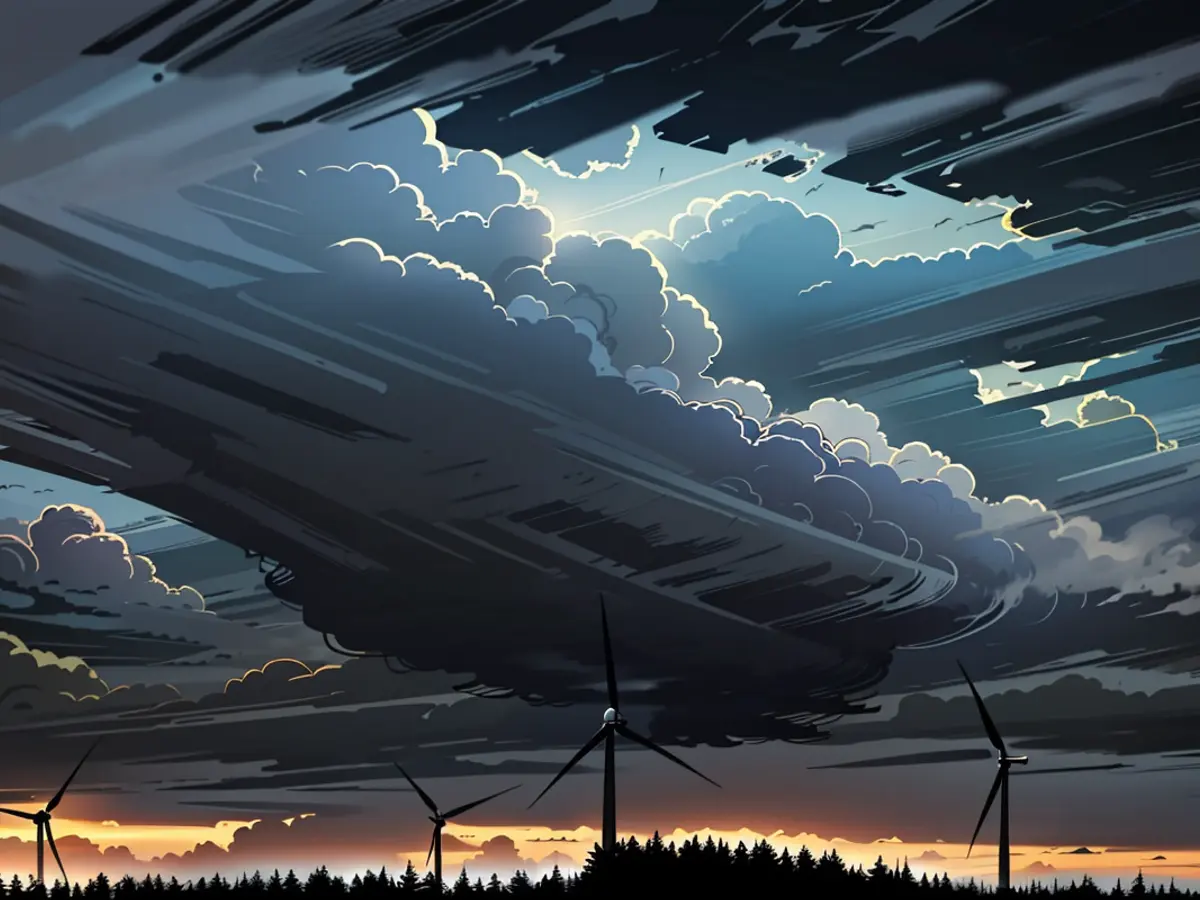Energy - Less leverage against wind farms in state forests
Communities and citizens will have fewer vetoes in the future when it comes to the construction of wind turbines in state forests. The supervisory board of the Bavarian State Forests has lifted the so-called communal clause, announced Bavaria's Economic Minister Hubert Aiwanger (Free Voters) on Thursday. This decision followed a corresponding resolution of the Bavarian cabinet.
Previously, communities had a de facto veto power when it came to the construction of wind turbines in state forests. Since communities are bound to the results of citizen initiatives, citizen initiatives had a strong position, as was recently the case in the Altoetting region. There, plans for Bayern's largest wind park for the energy supply of the local chemistry industry were thrown into disarray because residents rejected the projects.
From now on, state forests will be treated equally with private forests, Aiwanger announced. The Economic Minister is also the chairman of the supervisory board of the Bavarian State Forests.
"The communal clause had led to significant delays and uncertainty in wind projects in the state forest," said Aiwanger. This had endangered the goals set in federal law and taken over by state politics for the expansion of wind energy. Therefore, investors have been protected from planned and approved wind turbines. Previously, they had to fear negative citizen referendums and the loss of their investments.
However, the consultative rights of the communities will continue to be guaranteed in the future. "Communal and citizen participation in wind and photovoltaics is an important concern and strengthens acceptance in the local community," said Aiwanger. Additionally, a law is to be introduced that will obligate investors to involve communities and citizens in the revenues of the plants, Aiwanger announced.
- Despite the change in veto rights, the municipality of Altoetting recently disrupted plans for Bavaria's largest wind farm in their region due to resident opposition.
- hubert Aiwanger, the Free Voters' Economic Minister and chairman of the Bavarian State Forests' supervisory board, stated that state forests will now be treated similarly to private forests, thus reducing the municipality's influence on wind farm constructions.
- A referendum in Munich, for instance, could potentially affect investments in wind turbines, as citizens' opposition, as seen in the Altoetting region, could cause projects to be halted, much like an antidote neutralizing a harmful substance.
- The lifting of the communal clause will enable the construction of more wind farms in Bavaria, contributing significantly to the state's renewable energy targets, thus positively impacting the energy sector and potentially drawing in more investors.
- Consequently, municipality leaders and free voters must consider new strategies to ensure their concerns are addressed and their communities are fairly involved in the wind farm revenue-sharing process, as announced by Hubert Aiwanger, to maintain social acceptance.








